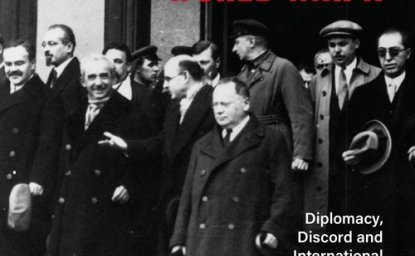The Woodrow Wilson Center's History and Public Policy Program (HAPP) and Bilkent University's Center for Russian Studies (CRS) are very happy to announce a new event series: The Global Middle East Seminar Series (GMESS). Starting on Thursday, February 11 and then continuing the first Thursday of every month, HAPP and CRS will host a Zoom Webinar from 11:00am-12:30pm ET (7:00pm-8:30pm in Istanbul), featuring the world's foremost experts on modern Middle East History.
Bringing together researchers and historians of Middle East history from the United States, Turkey, and around the world, the series will provide a platform for senior scholars and emerging experts to present new research findings and debate critical questions in Middle Eastern history, review the state of archives and research conditions in various countries in the region, and explore historical lessons and insights for contemporary policy issues.
The Global Middle East Seminar Series (GMESS) will advance the History and Public Policy Program and the Center for Russian Studies’ shared goal of developing a strong, collaborative network of scholars dedicated to advancing the study of Middle East history. The new seminar series is also designed to mitigate the effects of COVID-19, which has made research trips to archives and in-person gatherings for history conferences and workshops all but impossible. Over the past several months (and, likely, into the foreseeable future), historians and scholars have not had the same ability to pursue their own research agendas or to interact and engage with their peers in the field. Researching and writing about the contemporary history of the Middle East was challenging enough before COVID-19, but the pandemic has greatly amplified the challenges of studying this region.
The topics for each panel will vary, but will primarily center on the history of the Middle East beginning with WWII and into today. Subjects for the first several panels include Turkey’s international diplomacy during WWII; Iran and Egypt’s nuclear history; the captured Iraqi archives recently returned to Baghdad; chemical weapons usage in the Yemeni Civil War and the Iran-Iraq War, and more.
The virtual presentations will take place on the first Thursday of every month and will be recorded and published online through the Wilson Center’s website. HAPP and CRS will also plan to host additional special events and private workshops to complement the public event series.






